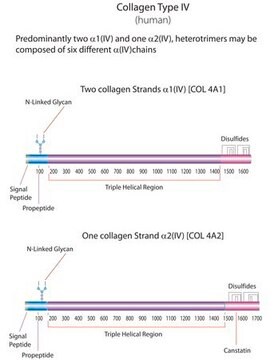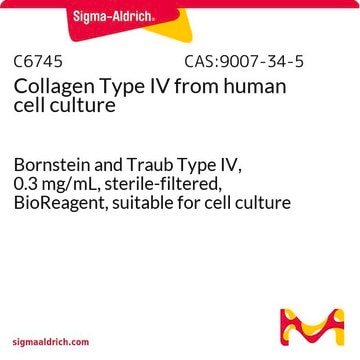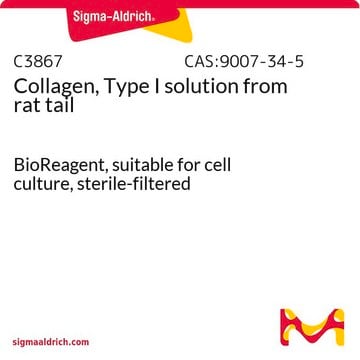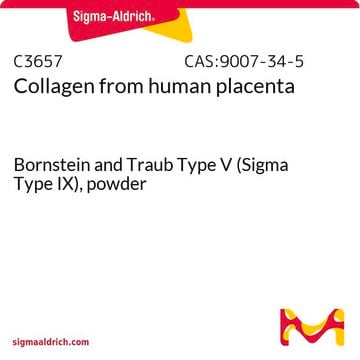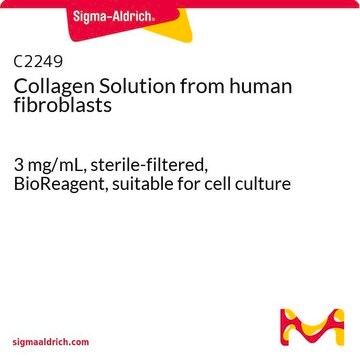C7521
Human Collagen Type IV
from human placenta, powder, suitable for substrate for collagenase and for diagnostic assay manufacturing
Sinónimos:
Collagen Type 4
About This Item
Productos recomendados
Nombre del producto
Colágeno from human placenta, Bornstein and Traub Type IV, powder
biological source
human placenta
Quality Level
description
Sigma Type VI
form
powder
impurities
HIV, hepatitis B and hepatitis C, none detected
solubility
0.5 M acetic acid: 1 mg/mL
suitability
suitable for substrate for collagenase
application(s)
diagnostic assay manufacturing
storage temp.
−20°C
Gene Information
human ... COL4A2(1284) , COL4A3(1285) , COL4A4(1286) , COL4A5(1287) , COL4A6(1288)
¿Está buscando productos similares? Visita Guía de comparación de productos
Biochem/physiol Actions
Components
Preparation Note
Analysis Note
Other Notes
Storage Class
11 - Combustible Solids
wgk_germany
WGK 1
flash_point_f
Not applicable
flash_point_c
Not applicable
ppe
Eyeshields, Gloves, type N95 (US)
Elija entre una de las versiones más recientes:
Certificados de análisis (COA)
¿No ve la versión correcta?
Si necesita una versión concreta, puede buscar un certificado específico por el número de lote.
¿Ya tiene este producto?
Encuentre la documentación para los productos que ha comprado recientemente en la Biblioteca de documentos.
Los clientes también vieron
Nuestro equipo de científicos tiene experiencia en todas las áreas de investigación: Ciencias de la vida, Ciencia de los materiales, Síntesis química, Cromatografía, Analítica y muchas otras.
Póngase en contacto con el Servicio técnico

